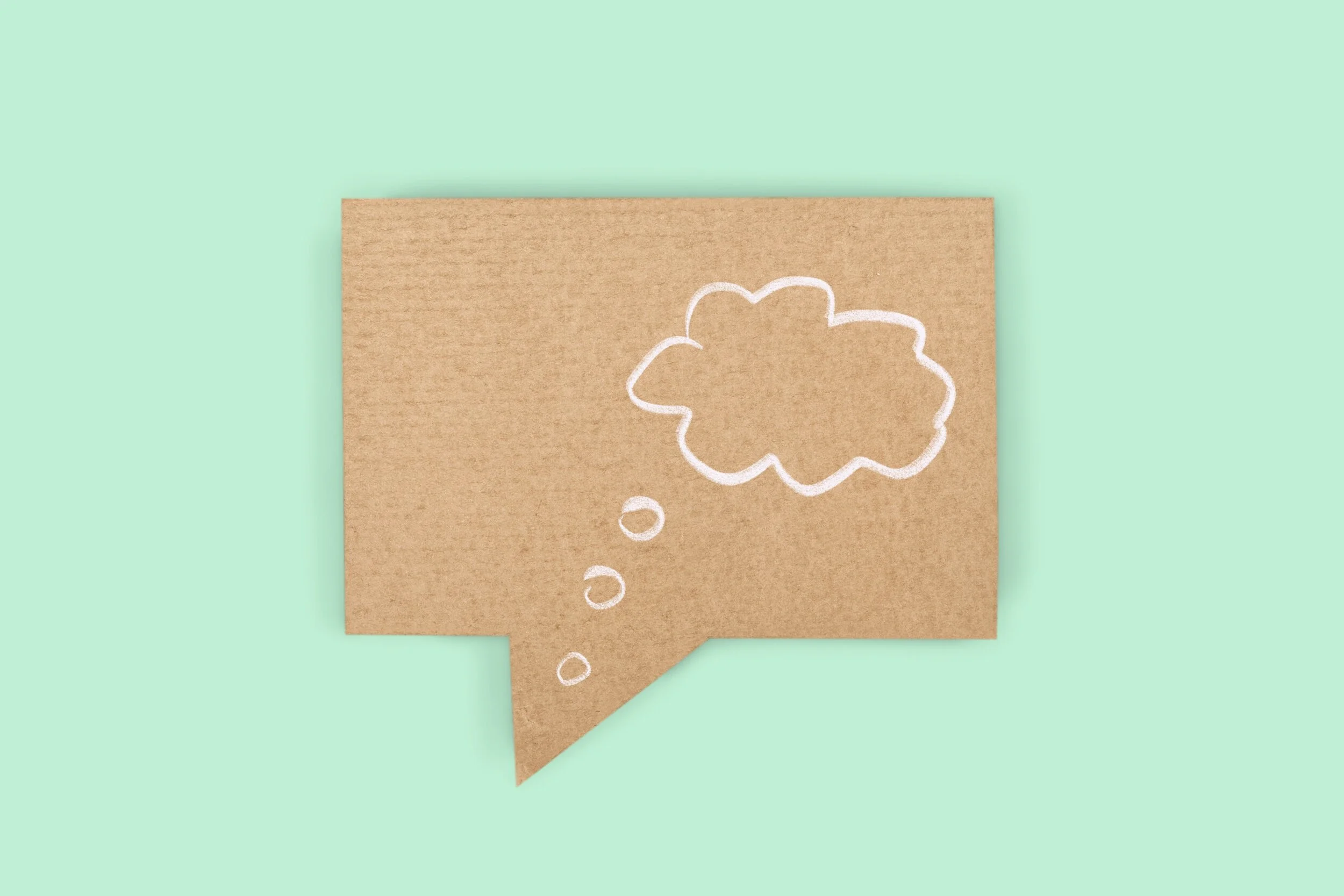On worrying about what you think people think
This is a written excerpt of Rest & Recreation, a companion to Routines & Ruts conversations podcast. Each week, host Madeleine Dore shares reflections from previous interviews and interesting reads to offer you a moment of R&R. Listen on Apple iTunes, Spotify and others.
Words by Madeleine Dore
Have you ever had an afternoon free, or even an hour you could be resting or doing something you enjoy, only to wither it away ruminating past disappointments, worry about the future, or replaying embarrassing moments or awkward conversations over and over.
Many of us spend a lot of time spend thinking about something other than what we are doing.
While it would be unrealistic to eliminate our negative thoughts altogether—human brain is primed for distraction and negative thoughts can provide helpful information—but perhaps we can shift dwelling or ruminating on those that don’t aren’t offering such insights.
One example of a thought-tangle for me is ruminating on what other people think. Often, when we are worrying about what people think of us or what we’re doing, we are really just worrying about what we think they think.
This is not only a very imprescise guessing game, but one that actually has no bearing on who we really are. Yet we can easily obsess and spiral in this projection, and become stuck.
Perhaps here, we can take a lesson from the cosmos. In my recent conversation with astronomer Greg Quicke, it was helpful to think of Pluto. There’s a lot of debate about whether Pluto should or shouldn’t be included in the solar system. But as Greg points out, for Pluto, what we think doesn’t matter so much.
We can be just like Pluto. What people think of us really doesn’t change us—it’s about finding our own internal direction and feeing a sense of being okay in our place.
Since this conversation, when I’ve found myself ruminating instead of resting, or obsessing about what I think people think, I’ll say “Be like Pluto.”
It’s a simple practice, perhaps even a trivial one, but maybe a tangible step towards change. When I’ve experienced a period of unhappiness in my life I’ve often sought external change—my job, hairstyle, or even home—only for such feelings to eventually find me again. After all, wherever you go, there you are.
So instead of getting stuck or making a drastic life change, we can perhaps become more aware of our thoughts and allow for the moment we are in.
A few years ago, I decided to put such internal awareness to the test through an opposite thought experiment.
To do this, I took the advice of the late poet and philosopher John O’Donohue. In an interview with Krista Tippett, he suggested a simple thought exercise that involved tracking your most common thoughts and devising a new set.
For the first week of the experiment, I noted and catalogued my thoughts in the notes section of my iPhone. By day seven, the themes were clear—worrying about the future; worrying about what other people think; beating myself up for perceived flaws; comparing myself to others; negatively internalising other people’s actions or words; and ruminating on the past.
What was most startling when reflecting on this list was that each worrying thought was outside of my control. What people think of me, the future, and what other people do is not something I can change by mulling over it. For the most part, I can’t control what happens in my life, but I can control how I think about it.
In the second week, I developed an alternative thought to each on my list. In the following weeks, each time I noticed myself falling into the mental loop of worrying about my career trajectory, I would tell myself, “I’m doing what I can now with what I have.”
If I found myself lost in thoughts of the past or replaying interactions, I repeated “Be open to the surprises in the present.”
A simple reminder when I was slipping into another negative thought spiral was simply to ask myself, “Can I control or change this?”
Just like Pluto, we often can’t change what other people think, so again, it’s a reminder to simply be Pluto.
When we test and probe our most common thoughts, we begin to see how our thoughts are constructed—and how much control we really do have.
What became clear in this experiment is that we can’t believe everything we think. We have choices. We can apply thought awareness, get creative and develop a new set of thoughts, or simply let our thoughts pass without ruminating or attaching meaning.
Negativity, stress and even worry serves a purpose—it enables us to think critically about our environment and actions. But that’s not to say our thoughts couldn’t do with a good spring-cleaning once in a while.
So, to reframe your thoughts or unwind from a rumination spiral, take note of your thoughts. Spring clean your mind. Focus on what you can control. And try to worry less about what you think people think, and more about what you think.

